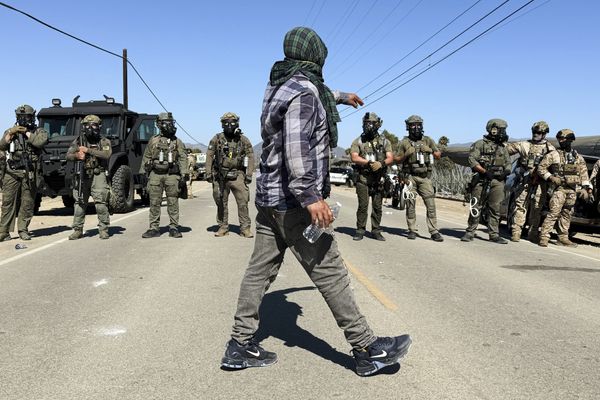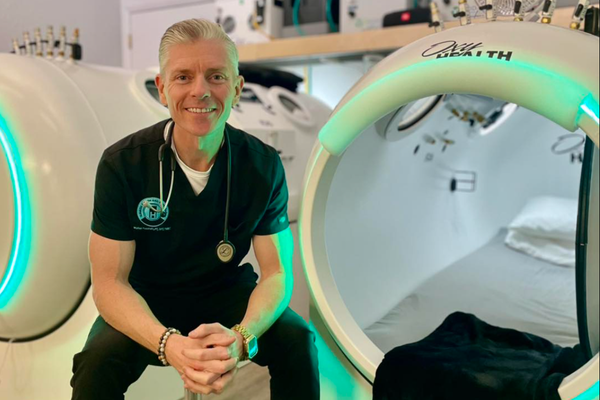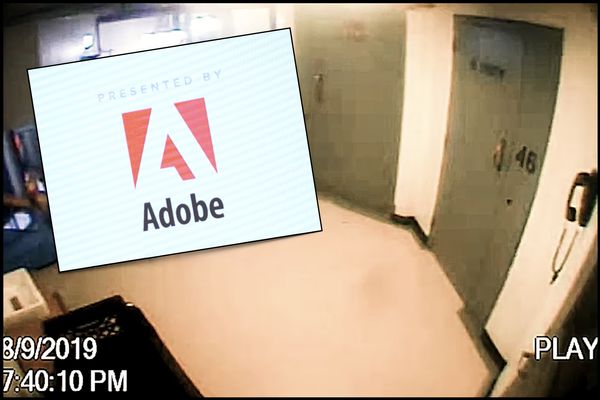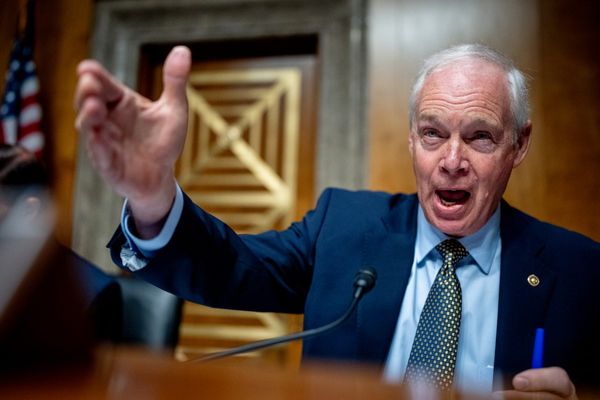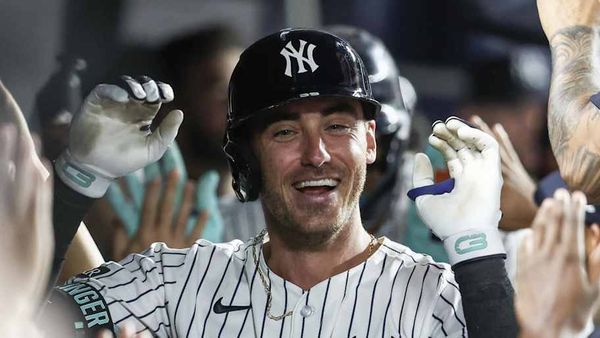
In November 1995, six twentysomething mates in London were sick of never finding anywhere to go out that fitted their idea of fun, so they put on a night of their own at the Royal Vauxhall Tavern (RVT) and called it Duckie. They were host Amy Lamé, DJs the London Readers Wifes (Mark Wood and Mark Johnston), producer-promoter Simon Strange (AKA Simon Casson) and “door whores” Jay Cloth and Father Cloth. It was the start of one of the world’s longest-running LGBTQ+ club nights and the ignition of a powerhouse performance collective that runs dozens of projects with hundreds of collaborators to this day.
Duckie as an organisation is going nowhere – it has plenty of touring shows, community projects and one-off parties in the works. But in four weeks, after 27 years, its Saturday nights at the RVT will end. The crowds still come but, venue management says, “revenue at the bar” is too low. It’s truly the end of an era.
As a gay teenage Londoner in the mid-90s, the first club I went to was Heaven, which felt somehow compulsory. It was liberating and intoxicating but, as a speccy, self-conscious type more into my parents’ 1960s LPs than house or techno, I didn’t really feel at home. The second club I went to was Duckie. On the speakers were David Bowie, Kate Bush and the Smiths. On stage, “anti-drag” act the Divine David castigated liberal complacency. And, like many other misfits, weirdos and queers, I felt right at home.
All this went against the grain of the 90s gay scene. Rather than gym culture, dance music, strippers and pills, Duckie melded the boozy bonhomie of gay indie-pop night Popstarz with the live-art vibe of the ICA, creating what it called “homosexual honky-tonk”. Less consumerist-aspirational gay, more sarky art-school queer, the crowd was thoughtful, bolshie and (mostly) kind. The Readers Wifes’ eclectic playlist ranged from X-Ray Spex to Abba. The acts were short and scandalous – radical praxis meets music hall. And rather than Soho’s shiny new bars, Duckie found its spiritual home in a run-down boozer south of the river: the RVT.
Around 1860, the pub was the first building to go up when Vauxhall’s notorious pleasure gardens, home to early cocktails, pop songs and classless cruising, closed. The RVT became a space of gay socialising after the war and was central to London’s 60s drag boom. In the 80s, its prominent community role at the time of Aids and section 28 provoked police raids, one involving resident drag act Lily Savage. The RVT hit a lull in the 90s, open just two days a week until the Duckie gang moved in and proved an instant hit. For Amy Lamé, being there “felt like us carrying on this torch” of experimental queer culture.
Duckie’s Saturday nights are a kind of alchemy. They catalyse lifelong bonds among devoted punters while insisting on live performance as a kind of blood sport. New York underground legend Penny Arcade says facing the crowd there is “like running with the bulls at Pamplona”. But it goes both ways. Punters are liable to be on the receiving end of both political challenge and bodily fluids, like those flying during an act by Mouse, a signature Duckie turn who regularly finds innovative new uses for various orifices.
Duckie put the RVT on the map as London’s home of alternative queer performance, paving the way for other influential weekly residencies at the venue. Trans-led showcase Bar Wotever forged a powerful fusion of radical sex-positive cabaret and inclusive grassroots solidarity, giving early platforms to artists such as Travis Alabanza. And one of London’s first drag bingo nights, hosted on Mondays by bearded eco-dragster Timberlina, built a big following off its experimental left-field humour and laid-back vibe. Duckie also repeatedly defended the RVT against profit-led redevelopment. In 1999, it led the charge against plans involving a shopping centre and “snow dome”. And in 2014, after the pub’s sale to international developers, it helped secure legal protections safeguarding its future, including making it a Grade II listed building.

Beyond the RVT, Duckie creates big immersive parties such as the scabrously ironic Gay Shame, held each year on the night of Pride in London. It has produced runs of experimental immersive shows at the Barbican and Southbank Centre and globally toured an Olivier-winning variety show internationally, long before La Clique. It also co-creates community projects with older people, homeless people and queer people of colour – “homemade mutant hope machines”, as I think of them, quietly bringing better worlds into being. The Posh Club, for instance, began as an afternoon tea party for older people without many friends or family and became an engine for fabulous adventures in dressing up, dancing and performing. This turn to social engagement anticipated broader shifts in the arts sector, just as the Wifes’ eclectic musical tastes and the nurturing of experimental short-form live performance have become London LGBTQ+ nightlife standards.
Duckie Saturday nights feel like family: a space to congregate in celebration and sadness, as when the RVT became a listed building or David Bowie died, and a place where trans and genderqueer lives are valued. There have been changes lately: Lamé, now London’s “night tsar”, stepped back from hosting the night and the Cloths left the door. But if change is inevitable, an LGBTQ+ club lasting 27 years in the same venue is a minor miracle. Duckie at the RVT has been a constant of my adult life and many others’, a queer night out that feels like home, an alternative to commercialism and conformity for more than one generation. It’s a place where I learned how powerfully fun, challenge and care can combine. They make for a killer party – and not a bad way of life. Ben Walters
• Duckie’s Saturday nights at the Royal Vauxhall Tavern end with Gay Shame on 2 July. Ben Walters is a critic and researcher who focuses on queer and DIY performance and moving image culture. His doctoral research, framing Duckie’s community projects as “homemade mutant hope machines”, can be found here

Kit Green
Award-winning writer and performer from Sheffield known for playing stage characters such as country music singer Tina C
I performed on the very first night of Duckie, as well as at a precursor event called Big Girl’s Blouse. It was the first time I played my character Tina C, which I did for another 26 years, so my work is very closely interwoven with Duckie. There was a tight gang of us at the beginning that went on to do more theatrical shows around the world and to win an Olivier award [for Duckie’s C’est Barbican! in 2004]. There was a sense of having a shared aim and being an alternative to mainstream gay culture.
I remember that first night being crazy busy, but for such an intensely packed, noisy place, there was already a sense that the acts were important. Nobody would talk during the performance, unless it were terrible. It was so valuable for me as a performer in the early days – the respect was there from the beginning. The audience wanted you to be good.
I’m performing at Duckie on 18 June and when I was wondering what to do, I suddenly remembered a character I used to play – a gay man who talks about sex all the time. I had this ridiculously filthy song – Portaloo – to the tune of Waterloo by Abba. I totally erased it from my mind – I mean, it’s not the most subtle piece from my entire oeuvre – but I must have sung it so many times at Duckie. So I will be reprising that.
Duckie has been very influential in the sense of putting forward what I would call a queer aesthetic, as opposed to a gay aesthetic. It was definitely ahead of its time in terms of its queerness, in its attitude towards gender and breaking down boundaries. I would never really use the word “drag” about Duckie, it’s more about a kind of fluidity across sexuality and gender. It’s an alternative queer universe. I think that is massively taken for granted now, but in the 1990s that didn’t really exist and Duckie was a space that made that live. Killian Fox

Azara Meghie
Multi-disciplinary artist based in London. Last year, she took over from Amy Lamé as host of Duckie at the RVT
Duckie has basically been my life for the past 13 years. I first got involved aged 17 through a dance company called the Stylinquents. They got us in to do the pre-show for [performance artist] David Hoyle and every week we’d come on wearing different looks – in military outfits or looking like menacing schoolgirls. It was really mental.
One week – and this is my most imprinted memory – Hoyle had this other artist come on and they went to the toilet on stage. David was talking about art and the Arts Council while drawing with the crap and being like: “This is art.” It was so out there. I loved it.
Last August, I started hosting the Saturday nights. I’ve been trying to drive inclusivity. Once we did a collaboration with Club Kali, a queer Asian night, and the different energy in that space was just so beautiful. I would like to think that my energy is drawing in more younger people, more women and more trans and non-binary people. And I’m seeing more people of colour. It’s a shame the Saturday nights are ending, but I don’t think it’s the end of it for me and Duckie.
I was already exploring my sexuality when I came to Duckie, but it provided a space where I was able to grow and become more accepting of myself. Back in the day, my mum probably thought Duckie was this corrupting influence, but when she was able to experience what the company do, see me in my element, it allowed us to grow together. That’s a really significant thing for me. KF

Ursula Martinez
Award-winning cabaret, theatre and performance artist, star of C’est Duckie, La Clique and La Soirée, whose career began at Duckie in 1995
Before Duckie, I was an unemployed actor with few prospects. I was also not very good. Then a friend told me this queer nightclub had just opened, where you could do anything as long as it wasn’t shit – you could be a performance poet or an old man playing the spoons. I did a cod-flamenco song about being half-Spanish from Croydon.
I’ve never forgotten the heat of the crowd from the little stage. Duckie made me realise what I needed to do: make my own work, in places where I could be who I wanted to be.

Duckie was such a clear alternative to the sanitised, cynical, money-making London gay clubs of the 1990s. It was a proper alternative space for queer, non-corporate weirdos. It helped me realise you can make shows that are pretty out there, which can still connect. I first did Hanky Panky [Martinez’s choreographed magic-act striptease] at a Duckie night in Birmingham. It’s mad to think it’s since opened literary festivals and been performed at the Sydney Opera House and palaces in Croatia. The conceptual cabaret night we created from there, C’est Duckie, won an Olivier award [the first of three for Martinez].
Duckie is so much about community. It does unique things such as the Posh Club, which provides entertainment for older people, and it’s recently done brilliant work with homeless alcoholics. It’s also sustained itself through the years, understanding younger queer culture, trans culture and people of colour. That’s why younger people go there and old regulars continue to. It brings the generations together.
When I learned Duckie was leaving the RVT, I was shocked. It’s a seedy shithole, but going into that dressing room for me feels like going back into the womb! But all credit to Duckie that it won’t be held ransom by anybody. It will continue to provide a welcoming, alternative home wherever it goes. Jude Rogers

Wolfgang Tillmans
Turner prize-winning artist and photographer, 1990s-2010s Duckie regular
I don’t remember the first time I went to Duckie, which is maybe because it has remained consistently good. To be this good needs an inspired team. Much praise is rightfully given to Amy Lamé, but for me, the Readers Wifes were the main draw. They played tunes that were not on the menu elsewhere: left-field American pop like Iggy Pop’s The Passenger or Martha and the Muffins’ Echo Beach, alongside Bobby Orlando’s classics for Divine, plus whatever UK indie rock and pop had to offer for queer boys and girls who grew up in the 80s and thereafter.
Duckie was unashamedly retro from the start, knowing that those songs speak across generations about the experience of finding oneself just outside the mainstream. It was such a welcoming place. There was a camaraderie of misfits and it was never cliquey. We had found our weekly asylum.
I’d combine the long trip to south-west London from the East End with a visit to the railway arches nearby, using a cigarette break outside as just the right moment to peel away and disappear to more hands-on places such as the Hoist, which are now also history.
The performer I first saw there, and still hugely admire for his disarmingly confrontational honesty, is the Divine David, later better known as David Hoyle. He would have me gasping, laying his fingers in the wounds of my own pathetic-ness, while wrapping the audience in a deep sense of empathy. Duckie was also certainly a precursor of other arty queer east London nights such as Radio Egypt in the mid 2000s. The idea that a boozy night out could have something to do with art and culture has since been widely recognised, yet not supported and protected. It is a shame to see these hotbeds of underground creativity being marginalised in the nightlife industry. JR

Liz Carr
Actor, comedian and disability rights activist born in Birkenhead. On TV she has starred in Silent Witness and The OA. This year, she won an Olivier award for her supporting role in The Normal Heart at the National Theatre
In 2011, I was doing standup at the Soho theatre and a friend of mine brought [Duckie co-founder] Simon Casson to see me. The next day, Simon rang up saying he’d like to offer me a spot at Duckie. He basically said: “You can’t fail. You can do anything you want and I’ll rebook you.” My respect for him and the Duckie crew was born from that moment. As a performer, you’re very rarely given the chance to make mistakes or to do whatever you want.
I’ve performed there three times. It’s raucous. It feels like family. It’s creative freedom like I’d never experienced before. For the first gig, I put a headscarf on and pretended I was the Queen, having a dig at the royal family and some of our sacred institutions. The second time I did something more controversial with a bunch of other disabled performers called Inspiration World. It was all about how the Paralympics was a way of getting disabled people off benefits and into work. It was deeply political and very edgy. There’s nowhere else I could imagine putting that on.
One of the joys of Duckie is the dressing room at the Royal Vauxhall Tavern – a tiny room with all sorts of costumes and bodies all pressed up together. You have great conversations and a lot of nakedness and surrealism.
I’m thrilled that I was part of Duckie’s history. It’s such a wonderfully queer and creative world and it has been pivotal in the gay community. Without it [at RVT], there will be a massive gaping hole – euphemism confirmed – and nobody likes a gaping hole. I can’t think of another night that could fill it as well as Duckie did. KF

Mark Wood
Wood (AKA Chelsea Kelsey) is one half of Readers Wifes, Duckie’s resident DJs since its inauguration. In 2016, they released their debut album Gaslight
When [Duckie co-founders] Simon Casson and Amy Lamé got a four-night tenancy at the Royal Vauxhall Tavern in 1995, they were looking for DJs. My best friend Mark Johnston and I agreed to do it. We didn’t really want to, to be honest, because we didn’t want to stand up for five hours a night for a whole month. Now it’s 27 years later and we’re still there. It’s a cruel joke.
We had such low expectations. We were playing records that you didn’t really hear in clubs – X-Ray Spex, Kate Bush – whereas everything on the gay scene back then was house or really cheesy pop. When people started dancing at 10.30pm we were like “Oh fuck”. They were taking it a lot more seriously than we were. At 1am we played Wuthering Heights and complete pandemonium broke out – people were up on each other’s shoulders, glasses were getting smashed. The venue asked if we wanted to keep going after the first month, but it really was amateur hour when it started.

Vauxhall was so rough in the 90s, I remember we took a hammer and a chisel in case we were attacked. We had no experience of playing to gay crowds, even though we’re gay ourselves, so we were like: “What are these gay people going to do when they hear Jilted John or Sound and Vision, are we going to get attacked?”
Mark and I always had nine-to-five jobs, so Duckie has provided an essential dollop of weirdness and unpredictability every weekend. I’ve seen some things on that stage that you’re not meant to have seen. In the early 2000s, a fresh-faced kid came on with a curtain of steel rods nailed to his scalp. This terrifying German techno music was playing and he was swaying from side to side. It was just so disturbing.
There was an amazing Japanese woman who used to give birth on stage to a giant cabbage. And of course there’ve been people pulling things out of their arses – I’ve seen so many different things come out of different people’s arses over the years.
I’ve also met some absolutely fantastic people. We’ve had the best punters. When we play something, they actually give a shit. I think the less rigid music that you hear on the gay scene now has quite a lot to do with us and the fact that people are more open about what you can have on stage, rather than just a drag queen. It’s just all about choice – and variety. We’re the un-royal variety performance. KF

SJ Watson
Author of three novels including the bestselling 2011 thriller Before I Go to Sleep. Born in the West Midlands, he worked as an NHS audiologist before becoming a writer
When I moved to London in the mid-90s, I couldn’t find any places on the mainstream gay scene that felt like they were for me. I’ve always really loved music, but most of the clubs were all about drugs and being muscular and cruising. Then I heard people talking about Duckie and one Saturday evening my best friend and I ventured down. It was Welsh night and all the way across the Royal Vauxhall Tavern, suspended from the ceiling, were leeks tied to pieces of string. You were literally pushing leeks out of your way to get across the dancefloor. Straight away I thought, this is not like anywhere else.
You never quite knew what was going to happen next at Duckie, especially when we first started going, but you gradually realised that, towards the end of the evening, when [resident DJs] the Readers Wifes said: “This is our favourite song of all time”, it was going to be a different song to the one last week and next week it’d be different again. These little things helped to anchor you amid all the strangeness.
For a club with Arts Council funding, it’s always been prepared to take risks. I remember a performer who came on dressed as the figure from Munch’s The Scream and ended up reversing off the stage with a fish’s head sticking out of his rectum – that was unusual. Whenever Amy Lamé introduced an act with the phrase: “If you’re a Duckie regular move to the back so that the new people can get to the front and have a good view”, you always knew that meant it was going to be messy.
It’s more than just a club, it’s a community. There’s a whole generation of people like me who talk about Duckie as a place where we found our tribe and in many cases our partners as well – I met the person I went on to have a 14-year relationship with at Duckie. It’s trying to push the boundaries and be inclusive right across the spectrum. I’ve travelled around the world and I’ve never come across anything like it. With the Saturday night ending, it feels like the gay scene is becoming that bit more homogenised. KF

Miriam Margolyes
British-Australian actor and TV star best known for her roles in the Harry Potter films (as Professor Sprout) and The Age of Innocence. Her autobiography, This Much Is True, is out in paperback on 7 July
I did a standup gig for charity at the RVT in 2009. I loved it. [The night] was unashamedly, proudly, deliberately and flamboyantly gay and that’s always cheering. For a good 45 minutes I sat on a chair and just talked into a handheld microphone. I’m not a comedian, but I somehow was able to do it. I felt supported by the audience. They were very friendly and they obviously liked me and that makes you feel good.
I talked about my gay life. It was salacious, not to say revelatory. It would be hard to shock the crowd there, but I didn’t want to shock them. I was confiding in them. Because it’s odd, being a very public gay woman. There don’t seem to be very many of us and we get overburdened with the responsibility of it. And this was just fun. There were lots and lots of leather boys and it had that air of a bit excited, pent-up sexuality that gay boys generate.
I’m not somebody who goes to gay bars. I don’t like loud music or packed places and I’ve never been a dancehall enthusiast. I think it’s because I’m very short and I can’t see anything going on. I feel hemmed in. I like crossing barriers; I don’t [usually] enjoy exclusively gay experiences, but this was noisy. It was joyous. It was free and untrammelled. And you could not but be caught up in the excitement of the moment. KF

